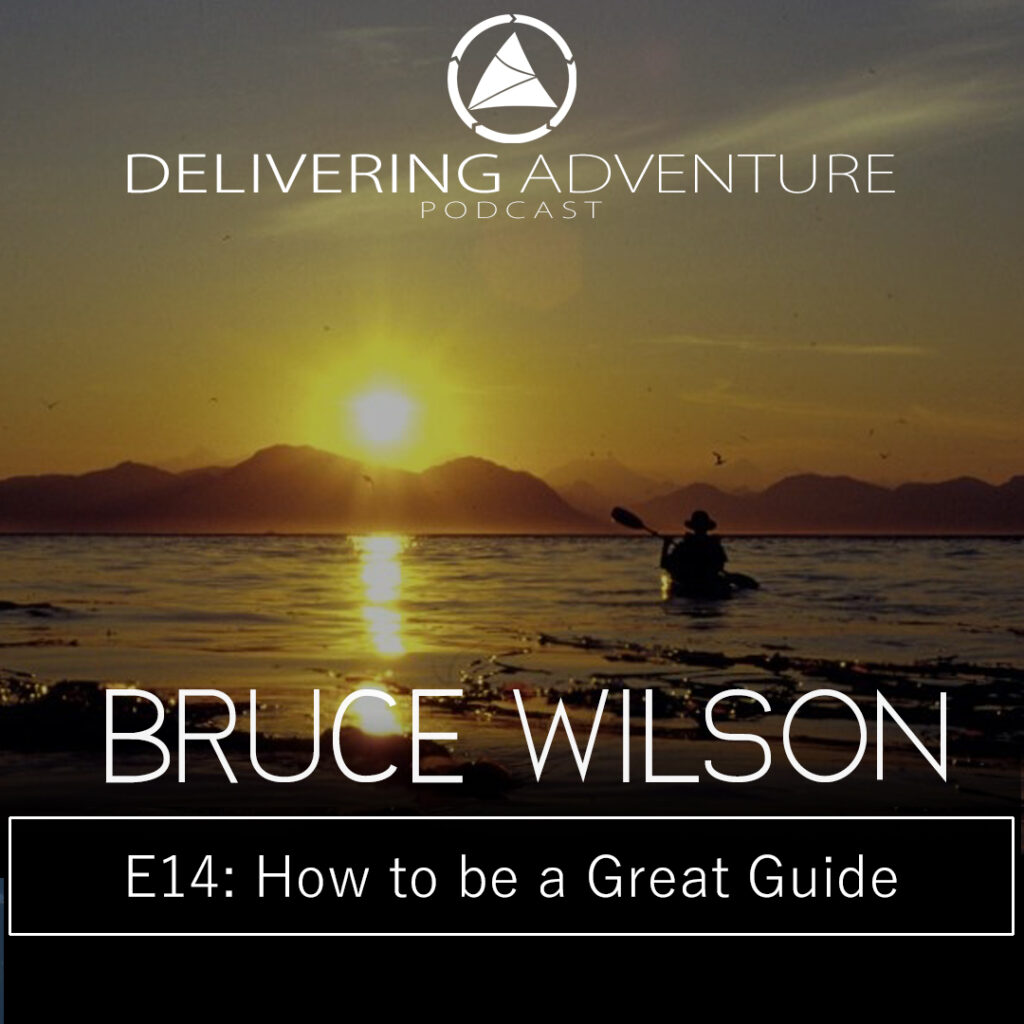
Episode 14: How to be a great guide with Bruce Wilson
What is a guide? What does it take to be a great guide? In this episode we explore these questions with master guide and guide educator Bruce Wilson. Bruce is a sea kayak guide a guide trainer, avalanche educator, hiking guide, University Instructor, leadership and vision quest coach, and owner of Warrior Wolf Guide Services.
Key Takeaways
What is a guide: A guide is anyone who offers advice, guidance, role modelling, inspiration, help, instruction, or direction to someone. This means that we are all guides at one time or another.
To be a great guide you need to adopt the right mindset: This includes always striving to be your best, working to become better, and being empathetic to others.
Manage your ego so you can be confident: Having humility and being open to learning from your mistakes are important traits of great guides. Great guides are also confident. Great guides believe in themselves under pressure and duress.
Evolution: Becoming a guide is the quintessential evolution of a human being. We don’t become great guides overnight, and others may not trust us until we have proven ourselves to them.
Guest Links
You can contact Bruce through Wolf Warrior Guide Services
Follow or Subscribe
Enjoyed this episode? Please follow or subscribe. Thanks!
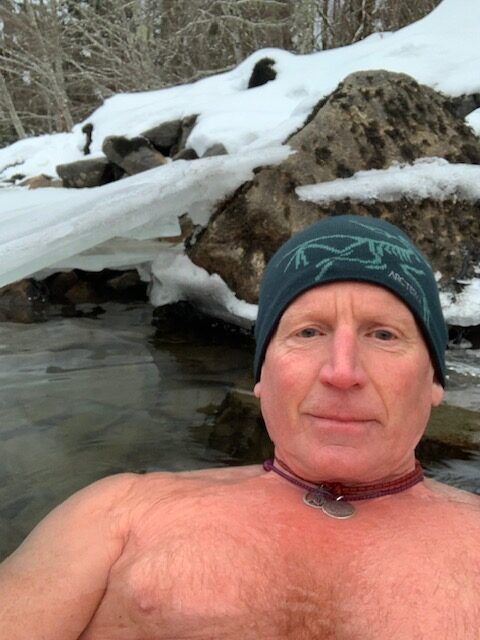
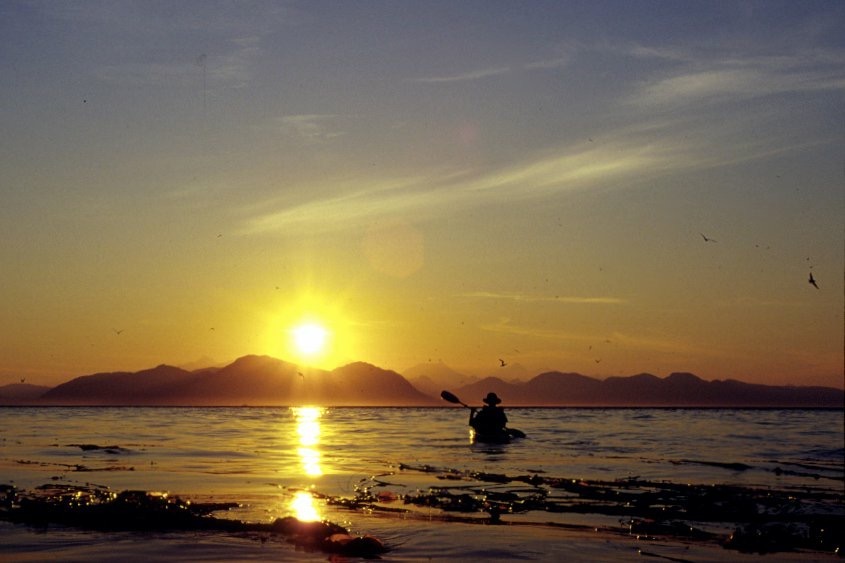
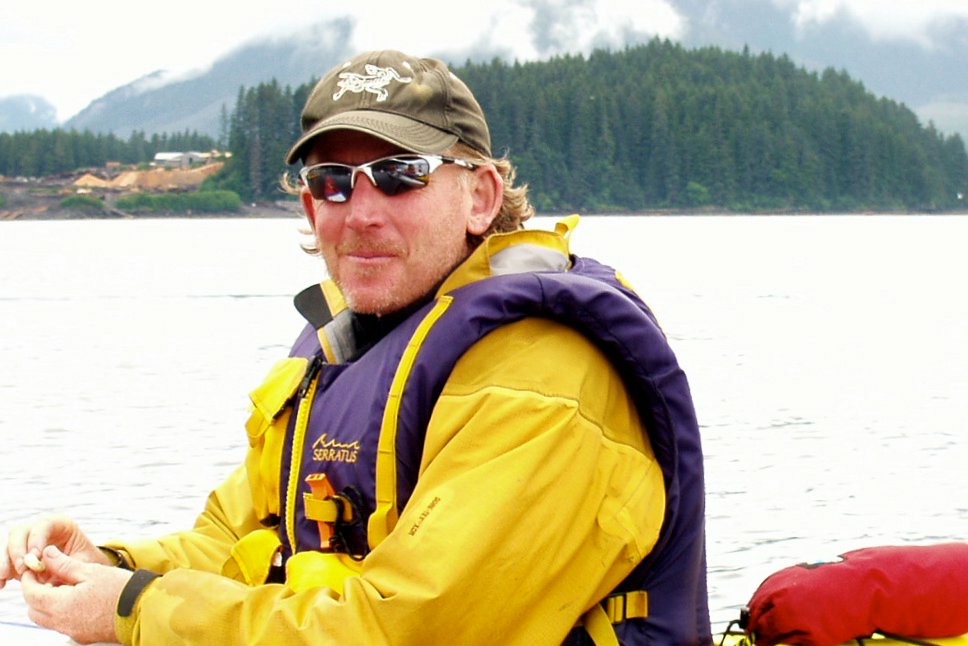
Episode Transcript
[00:00:00] Bruce Wilson: There’s no division between those two. There’s no line where I put on my, my hat or my tie and go, okay, well, I’m going to work. It’s actually, I’m always at work. I’m at work. When I’m at home, I’m at work. When I’m at work, I’m at work, you know, every moment of my life because I’ve chosen to adopt, you know, uh, a way of being in the world, a guide as who I’ve wanted to be.
[00:00:28] Chris Kaipio: This is Delivering Adventure. Welcome to the podcast that explores what it really takes to share adventure like a pro with your friends, your family, and as a profession. My name is Chris Kaipio, and I’m coming to you from Whistler, British Columbia.
[00:00:49] Jordy Shepherd: And I’m Jordy Shepard recording from Canmore, Alberta. After a lifetime of working extensively in different parts of the adventure guiding industry, Chris and I have teamed up to launch this podcast.
In each episode, you’ll hear top adventure guides, managers, marketers, and athletes share their best stories, advice, and trade secrets. The goal of this podcast is to share how you can take yourself and others farther from the mountains to the office and.
[00:01:17] Chris Kaipio: So, before we get going with this episode, I’d like to start off by congratulating you, Jordy on receiving the Platinum Distinguished Service Award from the Association of Canadian Mountain Guides, which you were given a few weeks ago.
You of course received this award for your many years of service to the ACMG as a volunteer and on a greater scale for all of your many years of service advancing your profession. For those listeners who may not know Jordy, I can tell you that he is one of the most generous people I know when it comes to donating his time and working to help others.
So, this award is well deserved. Well,
[00:01:54] Jordy Shepherd: Thanks Chris. Uh, it was, it came as actually quite a surprise to me and I had this realization that I’ve been. Helping with the association, um, in a variety, well on the board of directors and in other committee roles for over 10 years now. Uh, time really flies and it’s really, it, it has not been, it, it’s flown by because it hasn’t been.
Feeling like a whole lot of work, even though I, I’m sure there was a lot I put a lot of time in. It was just a, a natural fit and uh, it’s such a good group of people to be, to be part of. So, yeah, I’m really quite honored.
[00:02:31] Chris Kaipio: Well, Jordy, what are we going to talk about in this episode?
[00:02:34] Jordy Shepherd: Chris? We’re, we’re joined by Bruce Wilson.
Bruce is going to talk about what it means to be of guide and what it takes to be a great guide. The premise of the podcast is to share with you the listener, how you can deliver adventure to yourself, your friends, your family, and as a profession, like a pro. Every time we set out to do this, we become a guide to the people that we are leading.
So, while we often think of a guide as a person who leads people on wilderness trips, exotic travels, or to distant peaks, we become guides. Anytime we offer guidance, advice, inspiration, or direction to. Today Bruce is going to share his views on what it takes to be an effective guide and what that role entails.
Bruce Wilson is an acmg that’s Association of Canadian Mountain Guides Hiking Guide, a C Kayaking Guide and Guide Trainer for the Association of Canadian Sea Kayak Guides, a Canadian Avalanche Association, avalanche Professional, an instructor for Capital University’s outdoor recreation management program, and a Vision Quest instructor.
Bruce has a master’s degree in leadership. If that isn’t enough for credentials, Bruce also owns and operates Warrior Wolf Guide Services and Coaching. Chris, you know Bruce pretty well, is that right?
[00:03:46] Chris Kaipio: Yes. I’ve known Bruce for quite a while now. We did our Acmg Day hiking guide together in Pemberton a long time ago, and since then, I tend to call Bruce for his feedback every time I have a big project, including this podcast.
Bruce is a super thoughtful guy, a deep thinker. He loves to learn and has a passion for pushing himself to be better. That is off the charts. This should be good and I’m really excited. So, let’s bring Bruce into the DA studio. Hello Bruce, and welcome to the show. How are you?
[00:04:22] Bruce Wilson: Hi Chris. Uh, I’m doing well.
I’m excited to be here. Looking forward to the experience. So, thanks for inviting me.
[00:04:29] Jordy Shepherd: So, Bruce, uh, where are you calling in from?
[00:04:31] Bruce Wilson: Uh, today, Jordy, I’m in, uh, beautiful Squamish, British Columbia.
[00:04:37] Jordy Shepherd: So, tell us a little bit about how you got started in your adventure industry.
[00:04:43] Bruce Wilson: Uh, well, I’d just come off of three years of chasing the wind and the snow and, uh, I was traveling around the world actually, uh, just skiing and windsurfing and, uh, chasing wind and snow, and I landed up at that point in time in Kingston, Ontario.
And, uh, I was thinking, okay, so what’s next? And, uh, I saw an advertisement for the outdoor recreation program at Caplan University, or well Cap College back then. And just on a whim, I applied and I was accepted. So, the adventure began where I had. What was it? About 12 days to get from Ontario to BC and so basically loaded up a 1972 Volkswagen van and, uh, packed her all up.
And, uh, a buddy of mine decided last moment. That sounds like a great adventure. And, uh, two of us jumped in. My van drove across the country and. I landed at, uh, cap College in the outdoor rec program, and that sort of formally, I would say was the initiation into the full commitment to, uh, an adventure type lifestyle and
[00:05:47] Jordy Shepherd: profession, or just driving a Volkswagen van across the.
The country is an adventure all on its own.
[00:05:53] Bruce Wilson: Oh, totally. And I didn’t know this guy that well. And so, to sort of paint the picture of the, the van, the driver’s window didn’t actually roll up. So, the adventure was whatever it was doing weather wise, that was on me. And the other thing with this guy is he showed up to go on this trip with me.
He had a cardboard box and he put this cardboard box in his lap in about day one and a half. I just had to, I said, so what’s in the box? And he goes, oh, I was waiting for you to ask me. And so, he opens up the lid of the box and I look in the box and there’s about looked like about a thousand photographs.
And so, for the next three and a half days, it was picture by picture, this guy’s life story. It was like there were some good parts, there’s lots of information.
[00:06:36] Bruce Wilson: Oh, my goodness. Yeah.
[00:06:38] Jordy Shepherd: So, what motivated you to get into the adventure?
[00:06:42] Bruce Wilson: Uh, I think I’ve always been very driven by creating my own path in life and, uh, just realizing I think pretty early on that uh, you know, from what I know, we only get one shot at this game called life.
And uh, I wanted to make sure that I defined it on my terms and did what actually, was important to me, but also at the same time, I also wanted to be of service or make a contribution. So, I thought that, well, you know, it’s a win-win. I can be working outside, I can be an environment that I love, uh, and I can also be working with people to create opportunities and growth experiences for them.
So, to me it just seemed a natural that, uh, you know, do what I love. While at the same time, you know, people often talk about, well get paid to do what you love. And so, you know, to a certain extent you get paid to do that for. But, uh, it seemed like a natural to actually do something and spend, you know, the bulk of my time doing something I actually enjoyed.
So never really was a question. It was just how do I do it really? And I saw a cap, uh, college being that that steppingstone.
[00:07:48] Jordy Shepherd: Nice. Uh, in your adventure career, tell us about a time when you felt you really made a positive difference.
[00:07:54] Bruce Wilson: I, I remember one time when, uh, it was, uh, what was it called? I think it was called The War of the Woods, you know, and they were, they were going ahead to, to log clock with sound and, uh, you know, there was the blockades, people were getting arrested, and there there’s a lot of confrontation in terms of, you know, old growth force protecting the.
And I remember running a trip at that point in time and, uh, all my participants weren’t actually from BC. They were from all around the world and. We all, uh, one day got up on one of the logging roads and we all joined arms, and we stood across this logging road and all watched the logging truck coming down, boom, boom, boom, boom, boom, and stopping in front of us.
And then we got into this great dialogue, you know, people from Germany and France and England and Canada with this logging truck driver about. Hey. And, uh, I think the awareness and the realization was for all of us we’re just, you know, we’re just doing what we can do and we’re just doing the best that we can do.
And it’s just, it was, it was a really profound moment of creating, I would say, community and also looking at the similarities as to the differences. And, uh, I still have people, you know, that’s, that was 19. O 93 I think it was. And I still have people get in touch with me to this day, you know, just going, do you remember that time?
And, yeah, that was, that was profound. And just in terms of just seeing somebody else from your perspective and vice versa.
[00:09:25] Chris Kaipio: That’s amazing. Bruce, what ended up happening with CLA Quit sound, the area that you’re describing on Vancouver Island?
[00:09:30] Bruce Wilson: Uh, eventually, definitely big parts of it were set aside and protected and, uh, you know, it became, Uh, one of those instances in time where I think there was enough public input, uh, enough public concern that, uh, you know, government listened, you know, so there was change.
And I think, you know, the way that we did it, it was positive change in the sense of it wasn’t confrontational change, it was just showing up. Like I said, as, Hey, we’re just all here. We’re doing different things. How can we come to some sort of understanding and awareness? So, you know, a big part of it was saved and protected in terms of the bios.
And also, Provincial Park.
[00:10:09] Chris Kaipio: So, Bruce, you’ve spent a, you spent a lot of your time in the role of being a guide to most people. A guide is often thought of in the context of someone who leads sports adventures or travel excursions. What does being a guide mean to you?
[00:10:24] Bruce Wilson: Well, I remember one time, uh, saying that the guide or guide is the quintessential evolution of being human.
And so, what I meant by that, it’s not that, you know, it’s, it’s a pedestal and it’s actually the opposite of that, that being a guide is actually how you choose to live your life. Because, uh, essentially what it, what it means for me is being a guide, is that I have, you know, a, a personal set of ethics, you know, depending on what organization or organizations I’m certified through, you know, I have to believe in that as well.
And so, it’s really a code of, you know, what determines how I show up in my life. You know, it’s like, so for being a guide to me, it’s, somebody says to me, what do you do? You know, the question isn’t what I do. The question really is, who am I? What am I? And so, to be a guide for me is actually a persona of a representation of who you are as an individual.
And so, it makes it actually very easy because there’s no going to work and coming home, there’s no division between those two. There’s no line where I put on my, my hat or my tie and go, okay, well, I’m going to work. It’s actually, I’m always at work. I’m at work. When I’m at home, I’m at work. When I’m at work, I’m, I’m at work, you know, every moment of my life because I’ve chosen to adopt, you know, uh, a way of being in the world, a guide.
As who I’ve wanted to be and just because I see, you know, guides as, as people who are, who have the privilege and the honor, and also the responsibility to lead others. So, you know, the baseline standard is for you to show up, but then you’re taking on. The responsibility of other people. And for me, that just keeps ramping it up and ramping it up and ramping it up.
So being a guide to me also means that I’m continually investing myself. You know, in terms of professional development, I’m taking courses, I’m out there on trips, I’m learning, I’m growing so that I can continually show up as a better human being, as a better guide for the people that I’m working with on these programs, these experiences, these trips, and whatever cap.
So being a guide to me, essentially is, it’s a way of life. It’s a way of being.
[00:12:39] Chris Kaipio: So, do you, you know, your professional development. You’re not just, you’re not just collecting skills. So, when you become, you know, a c Kayak, you know, guide or a stand-up paddle guide, and you’re, you’re coaching. To you, that’s not just professional skills, those are life skills.
Exactly.
[00:12:57] Bruce Wilson: Yep. So being a guide essentially is just being a good human in terms of, you know, there’s all, there’s all sorts of skill sets that make us better at who we are. You know, communication, listening, asking questions, uh, being patient, being humble, uh, being open to feedback. You know, those are all just life skills that make us better at just being people.
And so, why wouldn’t I do that? So, I get to invest in myself, which then also makes me better for all the people that are around me as well. So yeah, it’s, I feel incredibly fortunate to have this opportunity.
[00:13:35] Chris Kaipio: So, Bruce, not to date myself, you know, I, I think we’ve known each other now for like 25 years. Uh, I met you when I was young, obviously.
Um, but, uh, what a lot of people don’t know about you is you are, uh, an ultra focused person on your personal, you know, your professional and personal development. And so, for you being a guide is, is something that you’re very conscious of all the time, but, for a lot of people, they assume this position subconsciously or without them knowing it on a, on a daily and perhaps even, you know, hourly basis.
Um, when do you think most people sort of assume that role in their, in their daily lives without them noticing?
[00:14:19] Bruce Wilson: Well, I think in, in many ways Chris said it, it’s, you know, it’s very, very much like the, the, the bright, shiny object is that, uh, I think what attracts perhaps a lot of people, I’m not saying everybody, but a lot of people initially into the industry, is they see the bright, shiny objects of, you know, climbing mountains, being outside, being in really cool places.
And I think perhaps, you know, like I want that type of lifestyle where I can be in those places. And then I think, you know, depending on, you know, the individual or the path that you choose in your own life, there’s a, there’s a subtle alchemic process that occurs on you over a period of time. And I’m certainly fall into that category.
Whereas, you know, the first, you know, five years of my careers, like I’d be looking behind me and going, come on you guys. Let’s hurry up. Let’s hurry up. I want to get a good workout here. You know, it’s like, and then this, this transformational shift happens over time where you realize, wow, it’s not actually about.
Me, it’s about them, and it’s not about me being in these places. It’s about sharing these experiences with these people in these places. So, perhaps for some people it’s profound, but I think for myself it was just a continual, you know, slow process of over and over and over again. And then, you know, just one day waking up and realizing it’s like, wow, it’s so much bigger than what I thought it was before.
And I think that just comes with probably mileage, comes with experience probably, I don’t know. Go back to your opening comment, Chris, about we’ve known each other for a long time. I think age has a, a factor to play in that as. And, uh, how you chose to show up in that, in that role of what you’re doing as well, being open to, and you can’t help it really, but having the experience shape you as well.
It’s not just us shaping the experiences, but we’re also being shaped by those experiences if we’re open to that.
[00:16:12] Chris Kaipio: So, Bruce, we touched on it on a few different obstacles. What, what do you think are the key obstacles that, that people face that stops them from being an effective guide?
[00:16:24] Bruce Wilson: Uh, well one just that comes to mind immediately is that, uh, like I was saying, and, you know, certainly I succumb to this as well when I first got into the industry, and I probably still do at times, is that, uh, the experience or the activity becomes about me and it doesn’t become about them.
So, I think, uh, you know, a part of, one of the obstacles I see is that we get in our own. In terms of, uh, you know, maybe we get tired, you know, maybe we get, uh, a little bit dehydrated. Maybe we’re, we’re feeling a little bit under the weather. So, you know, our focus starts to drift a little bit in terms of, you know, not really being, uh, completely aware of our group or our situation.
And, uh, you know, maybe some of our energy shifts more to, you know, looking okay that, that, that weather’s coming in or whatever. Be so that you know our attention, our focus is, you know, where it needs to be. But before I step into that position of, you know, putting more energy into, let’s say, dealing with a weather situation is that I have to go back to the group first and go, okay, everybody, you know, we’ve got some weather coming in.
I’m going to be looking after you, so I want you to do this and this and this, but now I’m actually going to shift and I’m going to spend this, you know, five or 10 minutes gathering a bunch of information that I need to then come back to you with. So, it’s always making sure that you’ve got that, that bridge established.
And so that comes back to what I was saying earlier in terms of just getting in our own way where we start to rush through things and you know, it’s that that perception that things are speeding up that we need to speed up. Whereas in fact, sometimes we actually need to slow down to maintain that that uh, that rhythm.
Some of the other things that get in the way, I would say are, uh, you know, let’s say if you got some, some major stresses going on in your personal life is not having the capacity to separate that from when you’re actually doing whatever activity it is that you’re doing. So, let’s say. I don’t know, you’re going through a divorce and, uh, you know, it’s just really nasty.
You know, really, is it the best time for you to be leading that adventure? You know, and you’ve got all this other stuff going on in your personal life that, uh, you know, might be taking you away from actually being a hundred percent committed. You know, your intention is good, but you’ve just got these stressors going on in your other life.
Uh, the other one for sure goes without saying is ego in terms of, you know, it’s about us again, in terms of, you know, it’s that old joke, you know, in terms of what’s the difference between a RAF guide and God. God never thought he was a RAF guide, you know? So, it’s, you know, whenever you’re in a position of influence or you’re in a position of, let’s say power, or you’re making decisions for other people, you know, often there will be a level of responsibility that shifted onto you from your participants.
So, one of the ways I diffuse that is, you know, and I certainly recognize that when people show up, it’s, you know, I always at first, you know, I felt heavier and heavier and heavier. It’s like, why am I feeling so much heavier when everybody’s showing up? And it was because everybody was offloading the responsibility onto me.
You know, I’d have these, you know, type A overachiever executives going, Hey Bruce, you know, what should I have for lunch? Are you kidding me? Like you’ve, you’ve managed, you’ve excelled in your personal life. Why are you doing this now when you’re out here? So just making sure that people maintain that autonomy of who they are.
While at the same time, creating an opportunity to them, for them to look at you as far as, okay, you’re the, the expert in whatever we’re doing. So, I need to look at you for that. But it doesn’t mean I give you the whole package. You know, I just give you that part of the package, not my capacity to, you know, when should I go to the bathroom or when should I brush my teeth or come on.
[00:20:22] Chris Kaipio: So, one obstacle that I see people face is gaining buy-in from people that they are trying to influence. So often we can find ourselves in situations where the people we are with probably need our guidance but don’t want it. This is often a result of their ego or them not knowing what they don’t know about the situation that they’re in.
Bruce, how do you think we can handle these types of situations in a way that encourages the people that we are interacting with to become more open to hearing our guidance?
[00:20:52] Bruce Wilson: Well, there’s two skill sets I would say that, uh, immediately come to mind. Chris. The first skill set is curiosity is.
Demonstrating genuine curiosity towards your guest or your guests in terms of, you know, it’s, you know, people might call it small talk, but, uh, it’s, it’s small talk, but it’s small talk with the active intention of building connection and engagement. So once again, that means, you know, Practicing and utilizing the active listening skills.
You know, it means also, the second part to that is asking really good questions. You know, questions. So, curiosity, then supported by really good questions, not just, you know, so what do you do? How are you doing? How many kids have you got? But asking questions about, so you know, if you have a day off, let’s say it’s some, some individuals really, really busy, you know, they have no time off.
Maybe just drop a question in terms of let’s just, uh, you. Think about for a moment, you’ve got a day off. You know, what would you do just for you on that day off, you know? And so, I think it’s, we’re often what I’m trying to do is to go beneath the veneer of how people show up, to actually get in behind that, in, into that, as to, well, that’s who you are to the world, but I want to know who you.
So, it’s going to a deeper level of connection. So, it’s, it’s actually a genuine interest through that curiosity in terms of, you know, what that person thinks about whatever it might be. You know, uh, you know, why they are, where they are, how they got there. Ask people about their story, you know, what’s everybody’s favorite topic?
Themselves. Can you
[00:22:30] Chris Kaipio: think of a situation, Bruce, where you know you weren’t at your best and things, things went sideways and, uh, your ha really had to test your skills to, to get that situation back under
[00:22:43] Bruce Wilson: control. You know, the situation that actually comes to mind is when I was really stretched beyond my capacity in terms of an interpersonal situation within the group where one participant in a group was just really toxic to the whole experience and, you know, just destroying the group from this toxicity.
And I was like, I was maxed in terms of I didn’t know, didn’t know what to do. I. Absolutely everything in terms of, you know, pulling them aside, you know, pressure, you know, uh, discussion one-on-ones, you know, every trick in the, the toolbox that I had at that point in time, and I was still unsuccessful. That person just poisoned that whole entire experience for all of us, you know?
And I, and I walked away from that thinking. What could I have done differently? You know? So I think, you know, the lesson for me in that is that often we think in the context of adventure, that it’s the physical part that can, you know, destroy a trip or, you know, you have an injury or an incident or somebody gets badly hurt or, but it can also be in an emotional context as well, like, how are your people showing up?
And I think the, what I’m finding now too is that, you know, post pandemic or not, I don’t know. People are now showing up a little bit differently in that people have a lot of stress that’s been building up. You know, people have had an erosion of their community and contact and socialization, and so I think people are.
There’s, it’s a little bit different now as well. So, it means that once again, I have to dig a little bit deeper into that, you know, that emotional well or toolbox again, in terms of, you know, people are hurting right now. I sense in terms of, you know, we’ve had a lot of change. A lot of things have been going on.
Quickly and stressfully and uh, so yeah, I would just suggest that don’t forget about the emotional aspect of, you know, that mental wellness, that mental capacity of your participants as well, and are you equipped, you know, to deal with those situations. It’s not always just the physical context that, that take us out.
You, uh,
[00:24:47] Jordy Shepherd: spoke about, uh, that, that issue of moving faster and, and you know, having to kind of cause yourself to slow. Yes. And, uh, I, I totally see that when the environment is, is changing around us, uh, you know, the, the wind is picking up or the water’s moving fast, and, uh, we just have this natural tendency to move more quickly and, and make decisions more rapidly, even though we might not actually need to.
And it might be more hazardous to us to, you know, to and effect outcomes. And I, I found this, uh, guiding Heli skiing in part. Uh, there’s something about that helicopter and, and those, those rotor blades that are moving at a million miles an hour and, and just having to actively work with you and your guests to make sure that we don’t move that fast.
[00:25:36] Bruce Wilson: Yeah, it’s true. And, uh, just, uh, you know, maybe mantras help as well. And you know that mantra that I always pick up on those moments is go slow to go fast. And I think I saw that in an old, uh, VHS, uh, avalanche, uh, uh, video at one point in time, back in the day. Got to go slow to go fast. Absolutely.
[00:25:57] Jordy Shepherd: Over the, over the years, you’ve done a lot of things to develop yourself as a guide and instructor.
What are some of those, uh, those key things that you’ve, you’ve done actively or just happened to you, happen to fall into that really, uh, helped you through your career in terms of skill?
[00:26:15] Bruce Wilson: Well, I’d say one for sure, and you know, obviously it’s going to be, uh, a given for most people, but taking Wilderness first aid course and taking that course over and over and over again.
Wow. You know, in terms of, you know, thinking outside the box, problem solving, working with people even though it’s, you know, it’s a simulated situation, still stressful, it’s still real. And uh, that has been super helpful in terms of just having that competence and also confidence for sure. A number of years ago, I took a professional coaching course certification as well, and I found that very useful as well in terms of, you know, just being able to develop dialogue, ask questions, engage with people.
Also, in terms of assessing people as well, in terms of, okay, how are they showing up and why are they showing up that way perhaps? So that’s been very effective. Uh, another, uh, conscious effort, especially that I, uh, incorporated in my, my earlier years was making sure that I worked with a real diversity and variety of other guides because I wanted to learn.
I wanted to learn from the best. So, you know, I would, I’d basically work for free and I would just because I wanted to work with that specific individual, you know. That, that was huge in terms of just, uh, role models and mentors and, uh, just, you know, learning from some of the best and then also working for a diversity and variety of organizations over the years and in different locations.
You know, I made a conscious effort to, you know, work in the Yukon and Alaska and BC and Ontario and different, uh, countries and provinces just to, to, to break. Terrain all the time, because I didn’t want to get stale or static in my approach. I wanted curve balls coming at me all the time as well, so I could, you know, get better at what I was doing.
Professional development, you know, in terms of whatever activity or industry you’re working in with as well, you know, especially if you’re working for a company or organization, that’s, that’s invaluable as well in terms of being exposed to, you know, professionals in the industry as well. Uh, Another thing I do is I read a lot, so you know, I’m reading, you know, I don’t read, uh, Uh, fiction, it’s always nonfiction in terms of, you know, what’s, you know, what are some of the greats out there doing and what have they done if I’m fortunate enough that they’ve actually written a book about it as well.
Uh, wow. Even better. So, just learning from, you know, from some of the greats in terms of, you know, how they’ve approached and done things as well and why it was successful. Uh, looking at, uh, journals, uh, you know, another one is a resource is, uh, avalanche Canada. You know, accidents and incidents, you know, in terms of, okay, just those are super useful as well as far as, okay, what went wrong and why’d it goes wrong?
So, yeah, I find I get a lot of use out of that. And then also even just socially, you know, when you just get together with a bunch of guides, you get together with a bunch of people who are working in the industry and it’s like, okay, we’re off the record. Let’s just tell stories, you know? And uh, we tell stories and we learn from each other, and we help each other.
We coach each other, we mentor each other, and it’s just, you know, I love that aspect of the community as well, that just that, you know, we’re, we’re greater than the sum of the parts for sure. You know, so cooperation and just working together and sharing I find is just, it’s immense in terms of just building your skill sets and your capacity, but always playing it forward as well.
It’s like, you know, it’s maybe that that new person that you know, is just getting into the industry and, you know, the best way to learn is to teach, you know, it’s like, Hey, I’ll show you how to, you know, do this or take a bearing, or whatever it might be. And, you know, it’s just that playing it back as well, I find, uh, is really, because then it keeps it fresh.
You look at, you know, what you’re doing with, you know, those, those beginner eyes again, in terms of like, wow, I remember. 30 years ago, when I saw that. That way, you know? And wow. It just keeps it real, keeps it fresh. So those would be off the top.
[00:30:10] Jordy Shepherd: Awesome. The best, uh, mistake to learn from is someone else’s.
Yeah. Yeah, for sure. So, if you could go back in time to when you were starting your career, uh, what advice would you give yourself and if you wouldn’t change anything, that’s
[00:30:25] Bruce Wilson: fine. Well, I was thinking, you know, uh, Jordy, to be completely transparent, is that when I started guiding, I, uh, I started as an assistant guide, but I only lost it about, uh, Three or three or four trips because I realized, you know, I’m not learning as much being the assistant, it’s the guy in front of me who’s learning the most.
So, uh, I jumped into the driver’s seat immediately, pretty early in my career and, uh, made a ton of mistakes. Uh, so I learned a lot from those mistakes, but also at the same time that, uh, I believe fast tracked me because I was the guy who was taking the full load, the responsibility. It was like, you know, as Truman says, the buck stops here.
So, the buck was stopping with me. And that’s really where I believe you learn. The other thing to temper that a little bit is that, uh, let’s say when I was doing a lot of kayaking, I realized, you know, I loved it and it was a great tool and a great way to see the province or relative to the coast. I, uh, hooked up and started a company with a guy who was really good at what he did.
And so it was that mentoring role again in terms of, so what can I give him that he doesn’t have? Which, you know, I had some skills that he hadn’t developed and vice versa. So, Wow. That accelerated my capacity as well. So, what would I change? Uh, yeah, I don’t think I’d change a lot actually. I. Pretty happy with the way it all came together.
[00:31:53] Jordy Shepherd: That’s a sign of a good, good career. Uh, let’s switch gears a little bit. Uh, tell us about your work with Warrior Wolf.
[00:32:02] Bruce Wilson: Yeah, so basically, I’ve had my own business now for, I started it when I got out of o r and, uh, my business has morphed through the years. It seems like it’s about on an every six- or seven-year cycle.
And I’ve realized, you know, looking back in hindsight, that my business is really a pers. A reflection or personification of where I am in my life. And so, you know, when I first started my first business, it was sea kayaking and Mountain, and I hired a fellow who was doing all the mountain programs and it became another type of program, which was basically corporate development and leadership.
And then I developed another company. And with Warrior Wolf now, I’m really interested in, uh, facilitating the inner adventures for people. So, it’s just my belief is that, you know, the greatest wilderness really that’s left on the planet is the wilderness within ourselves in terms of just looking in ourselves as to who we are and what we are and how we become better at who we are.
So, Warrior Wolf is really focusing in on using the outdoors as a tool or as a catalyst for people to actually look inside themselves and build connection with. The reality of what I would say is true, and by that, I mean, you know, in terms of, you know, if you don’t set your tent up, let’s say correctly, and a big storm comes in, your tent blows away, or you get soaked, that’s on you.
And it’s the same in terms of your accountability, your self-efficacy. It’s like, it’s just, it’s just me. But I believe that we’re given a lot of slippery slope in society in terms of, well, maybe not having to. Responsibility or accountability. So, I’m using the paradigm of the outdoors for people to really, hopefully see by taking responsibility in your own life and accountability through the programs that I, I incorporate that, uh, people will start showing up as, as more solid human beings and then together we can make positive change.
Cool.
[00:34:04] Jordy Shepherd: Are there any, uh, just a couple equipment recommendations that you could make for the audience there that has really helped you be a, a better assisted you in being a better guide and instructor? Anything that’s you find or comes to mind that’s quite critical to what you do?
[00:34:19] Bruce Wilson: Yeah, for sure. And the one thing that jumps out at me immediately is my clothing systems in terms of always making sure no matter what the weather or climate conditions are, at that point in time that I’m comfortable, I’m dry, I’m warm, because then I’m working at maximum capacity if I’m cold, if I’m miserable.
Guess what? I’m not operating at full capacity. So just really getting to know yourself in terms of what you need for insulation or waterproof or whatever has really been a game changer. The other thing I love is just a little half liter thermos and, uh, you know, just sometimes that, that, you know, cup of coffee or hot soup or whatever it might be, is just once again, just elevating me up that not, or two.
So once again, I’m showing up, you know, completely at a hundred percent. Having good equipment, you know, equipment that you don’t have to spend a lot of time with, you know, it works. So, I would suggest if you can buy the best and, uh, you know, there’s a reason often why you pay a lot of money for it. It’s because it works and you’re not, you know, messing around with trying to get a binding on or whatever it is.
You know, it just, so it gives you time. So, all of these are giving you time so that you can use that time to, uh, to look after you.
[00:35:36] Chris Kaipio: Fantastic. Well, Bruce, thank you so much for joining us
[00:35:39] Bruce Wilson: today. Awesome. Well, I really appreciate it guys. Thanks for the opportunity. Thanks for coming
[00:35:44] Jordy Shepherd: on the show.
[00:35:45] Chris Kaipio: If you want to find out more about Bruce and Warrior Wolf, you can visit his website@warriorwolfguide.com.
Well, Jordy, what were some of your key takeaways from what Bruce had to say? What does it take to be a great guide? Well, Chris.
[00:36:03] Jordy Shepherd: Bruce did a great job here and there’s really a lot to, to unpack here and chat about. Two takeaways for me were, uh, number one, what is a guide to start with? Let’s talk about what a guide actually is.
A guide is anyone who offers advice, guidance, role modeling, inspiration, help instruction or direction to someone. Anytime we do this, we become someone’s guide. We become a guide anytime we work to motivate, educate, support, or lead people viewed through this context. We really, in a lot of ways throughout life are all guides in one form or another.
Uh, the second takeaway for me was to be a great guide. You need to adopt the right mindset. So, this means always striving to be your best. So, you should want to be the best guide you can be. And you’re always trying to learn, improve, learn from your experiences and other experiences, and hold yourself to the highest standard.
And really, we do this, uh, constantly through, uh, taking courses ourselves, even though we are guides and instructors, uh, professional development sessions that are put on by the various associations. And really just trying to be a sponge and just soak up. Uh, the knowledge and always talking to other folks, uh, that are in the industry and e even from other industries, and just trying to see how we can do better.
And another thing that Bruce conveyed as part of this was being empathetic. So here Bruce noted that the pandemic has changed people. Uh, I have found that people tend to be, uh, a bit quicker to anger and can be a bit more standoffish, and we’ve lost some of our social skills, uh, just through this whole pandemic here and, and really, yeah, that’s kind of the opposite of what we’re hoping to achieve, uh, being guides and so being empathetic, uh, any, any time you can do that, put yourself in someone else’s.
And, you know, so you’ve got a client, you’re working your way, uh, let’s say up a peak and really try to think, you know, you have your, your own perspective, but try and think from their perspective, how are they doing? Are they, are they way off the charts, out of their comfort zone? And maybe they’re not saying anything because you’re acting quite nonchalant because you’re quite comfortable.
And so really try and be empathetic and put yourself in their shoes. Chris, what are some of your takes.
[00:38:30] Chris Kaipio: Well, Jordy, those are excellent points. And I’m just going to add, uh, a couple of things to what you’re saying there. You know, the first thing that kind of came to mind as we were talking with Bruce is the idea of managing your ego.
We’ve heard from Wheel Gad in episode five and six and some of our other guests about the importance of, uh, setting aside your ego and, and working to try to meet the needs of the people that you’re helping instead of your own. Uh, we’ve also heard, uh, about the idea of. Learning from your mistakes and being able to, uh, look back at what you’ve done with a critical eye and not be too full of yourself, uh, which can get in the way of learning.
But Bruce touched on something else that may not have been as obvious to the listener, and that is the fact that you need to also be confident. And so, our ego. Can help to push us forward as well as holding us back at times. And so, what I mean by pushing us forward is that good leaders and good guides, they’re confident in what they’re doing and they’re sure of themselves.
And you can hear that in. Bruce’s voice, even though he conveyed a lot of humility. And I’ll just share one story here about Bruce. When we were doing our acmg day hiking guide exam together, it was, I think it was like day four of a, of a six-day course, and we were up, uh, north of Pemberton. Our group was meant to climb a small peak and then drop down a valley, and we were told that on the descent down the valley, if you go down the right side near the bottom of the valley, the drainage gets really, really steep.
And the previous groups that had gone down there had got cliffed out. It was very difficult terrain to work through. So, every other group that had gone down there previous to us had. Go down the left side. So, our whole group had decided we’re going down the left and sure enough I had the third lead and my sort of finish point, uh, for my lead was just before we had to cross the creek to go down that left side.
And I could feel the examiner kept pushing me as I was leading the group down. And I kept looking across the creek because I really wanted to get across to the other side and set Bruce up. But the examiner didn’t let me. And so, we stopped the group and Bruce took over and I could feel the examiner pushing Bruce to go down the right, because what the examiner wanted to see was how Bruce could handle the group down, going down through that cliff out terrain.
And Bruce did not buckle at all. He crossed the creek, took us down that left side, even though the examiner, uh, was giving him a lot of pressure to, to do so. And, and that’s a sign of a great. Guide. He had confidence in his abilities. And, uh, you know, when you’ve got to make those hard decisions, that’s something that you, you need to have.
So, it’s that balance of humility, knowing when to go back and learn from your mistakes, and also knowing when to go forward and trust yourself. And part of that comes, and this is the second point I want to touch on, is, is evolution. And you don’t become a great guide overnight. One of my favorites of Bruce Wilson’s quotes is that becoming a guide is the quintessential evolution of a human being.
And this is two parts to this part. One is that when we become a guide, people are looking up to us because they respect us. And that doesn’t happen overnight. And number two, it takes time to develop those skills. And this is something that, uh, we’re always working towards, uh, throughout our whole lives.
And someone like Bruce and the true professionals, they’re working at this all.
[00:42:12] Jordy Shepherd: Those are some great points, Chris. Now let’s turn it over to you, the listener. What were your takeaways? What stood out to you? You can share your thoughts, stories, or insights with us via our social media feeds or by emailing us.
You can find all of our contact information@deliveringadventure.com. Also, before you go, we need your help to keep this podcast going. Please take a moment to share it with your like-minded friends. The more listeners we can get, the more content we could bring to you. Also, don’t forget to hit the follow button so you don’t miss out on future episodes.
Thanks for listening.
[00:42:45] Chris Kaipio: So, Bruce, what’s the deal? With that tub in your backyard?
[00:42:51] Bruce Wilson: Well, the deal with the, uh, the cold water, uh, galvanized steel, I, I think it’s a, a cow drinking tank or something, but, uh, is that it’s filled with water and often ice and that, uh, every morning my intention is to start by doing something.
And difficult that I don’t want to do. So, every morning I climb into that tub of cold water and I immerse myself in that tub for on average about 15 minutes because it’s not where I want to be. And so, I believe that it’s building resilience in me and also building capacity for doing hard things. And, uh, just the self discipline of the mind to overcome and that, uh, I need to be in control, not the, the monkey mind that’s sitting on top of my shoulders here, so that that cold water immersion is, it’s a great way to actualize in my own life that put yourself in difficult situations because when you’re in a difficult situation, you’ve already been there.


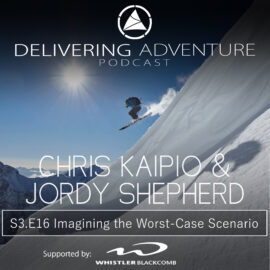

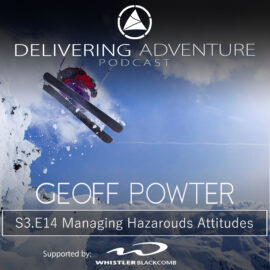
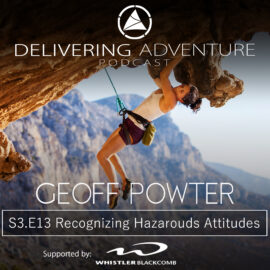
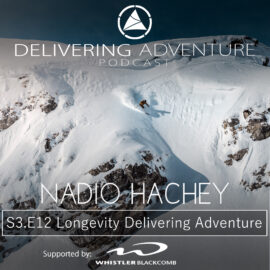

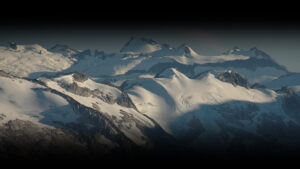
I have had the pleasure of working alongside of Bruce. He is still an inspiration to me as a person and for his ability to communicate. I really enjoyed this podcast